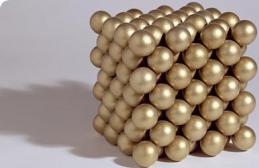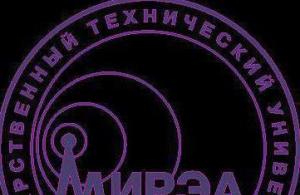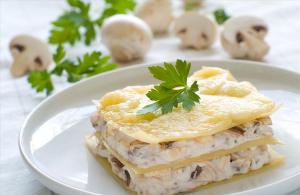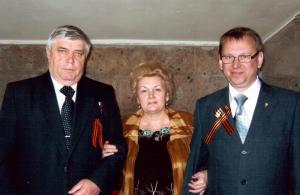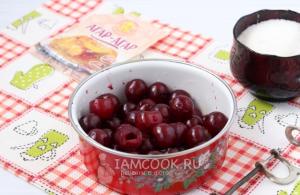Добрый день! Сегодня выполним упражнения на притяжательный падеж существительных в английском языке. Повторить правила по теме Вы можете в статье . На сайте также есть по данной теме.
Вот вам кратенько инфографика для повторения.
Ну что же, приступим.
Possessive Case упражнения
Упражнение 1. Укажите единственно верный вариант употребления притяжательного падежа.
- My ... parents have recently decided to move to the country.
1 sister’s-in-law
2 sister-in-law’s
3) sister-in-laws’
4) sister’s-in-laws
- Next Tuesday we’ll mark my ... wedding anniversary.
1) sister’s and brother’s-in law
2) sister and brother-in-law’s
3) sister and brother’s-in-law
4) sister’s and brother-in-law’s
- It was ... idea to celebrate Christmas together with our classmates.
1) Nick’s and Andy
2) Nick and Andy’s
3) Nick and Andy
4) Nick’s and Andy’s
- I send you many thanks and the very best wishes on this ... Day.
- The ... shouts of excitement started dying down as the other team scored the winning goal.
1) supporter’s
4) supporters’
- My ... jokes always make us cry with laughter.
1) father-in-law
2) father’s-in-law
3) father’s-in-law’s
4) father-in-law’s
- Where are ... schoolbags? Have you seen them by any chance?
- They say that... milk is very useful.
- The painting disappeared from the ... house yesterday evening.
- All my ... bicycles are better than mine.
- These are ... cameras. They are expensive, aren’t they?
1) Pete and Tim’s
2) Pete’s and Tim
4) Pete’s and Tim’s
- The ... department is upstairs, on the third floor.
- The ... area is run by experienced stuff.
- It is the ... fault, not the children’s.
2) growns-up’s
Упражнение 2. Transform the following sentences using possessive case of nouns where possible.
- I’m a great lover of the music of Mozart and Chopin.
- The house of my Aunt Mary was surrounded by a beautiful old garden.
- Manchester United Club spends millions of pounds on the wages of its players.
- The bedroom of Paul and Helen was spacious and comfortably furnished.
- The favorite opera of my father was the Marriage of Figaro by Mozart.
- We were celebrating the victory of our football team.
- I’ll always remember the apple-pies of my mother-in-law.
- The essays of Kate and Ann were the best in the class.
- Isn’t it strange that he enjoys spending money of other people?
- When burglars broke into Simon’s house, they stole all the jewellery of his mother.
Ответы к упражнениям на притяжательный падеж.
Упражнение 1.
1 – 2, 2 – 2, 3 – 2, 4 – 2, 5 – 4, 6 – 4, 7 – 2, 8 – 2, 9 – 3, 10 – 2, 11 – 4, 12- 3, 13 – 2, 14 – 2
Упражнение 2.
- I’m a great lover of Mozart’s and Chopin’s music .
- My Aunt Mary’s house was surrounded by a beautiful old garden.
- Manchester United Club spends millions of pounds on its players’ wages .
- What do you think of the recent article on the problems of education?
- 5. Paul and Helen’s bedroom was spacious and comfortably furnished.
- My father’s favorite opera was Mozart’s Marriage of Figaro .
- I asked her for a glass of juice.
- We were celebrating the our football team’s victory .
- I’ll always remember my mother-in-law’s apple-pies .
- According to the recipe you must add a spoonful of honey to the dough.
- Kate’s and Ann’s essays were the best in the class.
- He gave me a bar of chocolate for a snack.
- Isn’t it strange that he enjoys spending other people’s money ?
- When burglars broke into Simon’s house, they stole all his mother’s jewellery.
- The house you are looking for is at the end of the road.
Спасибо за внимание!
Для обозначения принадлежности чего-то кому-то в английском языке (и в американском тоже) используется конструкция с предлогом "of" (This is the office of the attorney ) или притяжательный падеж, на письме обозначающийся как "-"s" (This is the attorney"s office). Притяжательный падеж чаще употребляется в разговорном английском. Например,
Here is the desk of Mr. Young. - Here is Mr. Young"s desk.
I know the family of Mrs. Jones. - I know Mrs. Jones"s family.
Обратите внимание на изменение в порядке слов в предложении, когда используется притяжательный падеж (форма "-"s"). Сначала упоминается владелец предмета, а затем сам предмет.
Упражнение 1. Употребите данные в скобках выражения в притяжательном падеже.
1. I met ____ when I was at the store. (the daughter of Mrs. Brown)
A) Mrs. Browns" daughter
B) Mrs. Brown"s daughter
C) Mrs. Browns"s daughter
2. Welcome to our home. You may sleep in ___ tonight. (the bedroom of my son.)
A) my sons" bedroom
B) my sons"s bedroom
C) my son"s bedroom
3. I met ____ at a party last week. (the sister of Frank)
A) Franks" sister
B) Frank"s sister
C) Franks"s sister
4. Why are you reading ___? (the newspaper from yesterday)
A) yesterday"s newspaper
B) yesterdays" newspaper
C) yesterday"s new"spaper
5. The ___ is damaged. (the bicycle belonging to the child)
A) the bicycle"s child
B) the child"s bicycle
C) the childs" bicycle
6. Sarah is ___. (the name of my wife)
A) my wife"s name
B) my wifes" name
C) my name"s wife
7. I heard ___ ringing earlier. (the bell of the cow)
A) the cows"s bell
B) the cow"s bell
C) the bell"s cow
8. ___ is about to leave. (the friend of Paul)
A) Pauls" friend
B) Pauls"s friend
C) Paul"s friend
9. On Thanksgiving, ____ is short! (the life of a turkey)
A) a turkey"s life
B) a turkeys" life
C) a turkeys"s life
10. Abraham Lincoln was ____ . (the 16th President of America)
A) Americas 16th President
B) Americas"s 16th President
C) America"s 16th President
Упражнение 2. Есть ли ошибки в этих предложениях? Если да, то исправьте их.
1. She is the childrens teacher.
2. I like her sons blue eyes.
3. There are three computer"s over there.
4. I met Helen"s daughter"s boyfriend
5. Don"t give me any excuse"s.
6. What is the name of Clintons wife?
7. What do you think of it"s price? Is it too expensive?
8. It"s no use asking me.
9. Her mother"s not very happy.
10. My mothers mother was born in Scotland.
11. It"s too late to stop now. Tell Van.
12. The team has lost it"s coach.
13. It"s later than you think.
14. The United States are very powerful.
15. Its all very complicated.
Глава 12
12.1 Глагол "TO GET"
В американском английском глагол "get" используется очень часто в значении "становиться" ("become") + прилагательное, например:
I"m getting hungry.
You shouldn"t eat so much. You"ll get fat.
Также "get" используется в сочетании с причастием прошедшего времени ("-ed"). Причастие прошедшего времени употребляется как прилагательное для описания предмета:
We got worried, because they were late.
I got tired from all the work.
Чаще всего после "get" можно встретить "angry," "anxious," "big," "cold," "dark," "fat," "hot," "hungry," "late," "mad," "old," "rich," "sleepy," "tall," "thirsty," "warm," "well," "wet."
Упражнение 1. Вставьте подходящее по смыслу сочетание GET + причастие II
1. My boyfriend asked me to marry him. We...
A) got engaged B) got divorced C) got done
2. I heard a strange noise last night, and I...
A) got invited B) got scared C) got tired
3. After my shower, I...
A) got crowded B) got lost C) got dressed
4. I wanted to go to the party, but I didn"t...
A) get killed B) get invited C) get worried
5. In the freeway accident some people...
A) got crowded B) got sunburned C) got hurt
6. Unfortunately, two people...
A) got confused B) got dressed C) got killed
7. I thought the book would be dull, but I really...
A) got interested B) got acquainted C) got tired
8. Jack didn"t understand the teacher. He...
A) got crowded B) got married C) got confused
9. Our classroom has too many people. The class...
A) got drunk B) got crowded C) got engaged
10. I can go to the movies after my homework...
A) gets finished B) gets involved C) gets crowded
Упражнение 2. Вставьте подходящее по смыслу сочетание GET + прилагательное
1. It"s late and I haven"t eaten dinner yet. I"m...
A) getting hungry B) getting angry C) getting dirty
2. When it"s late at night, most people...
A) get hungry B) get sleepy C) get angry
3. People who drink too much caffeine might...
A) get hot B) get angry C) get nervous
4. On a hot day, people...
A) get full B) get thirsty C) get busy
5. People who win the lottery...
A) get hungry B) get busy C) get rich
6. When you eat a big dinner, you...
A) get hungry B) get old C) get full
7. It"s my birthday today. I"m...
A) getting old B) getting thirsty C) getting serious
8. If you spin around fast, you can...
A) get rich B) get quiet C) get dizzy
9. When students take a test, they usually...
A) get full B) get anxious C) get wet
10. When it snows outside, it...
A) gets cold B) gets warm C) gets late
Упражнение 3. Сопоставьте выражения из солонки В с предложением в колонке А.
| Column A | Column B |
| A. When two people first meet, they... B. I don"t feel very well. I think I"m... C. People who stay out in the sun too long... D. Some people drink too much beer at a party and they... E. When a movie isn"t very interesting, people... F. Jack and Jill argued too often, so they... G. Some people who play the lotto... H. If a person has a problem, he or she might... I. People who commit a crime should... J. Two people who love each other very much... K. Look at my niece. She"s growing up so fast. She"s... L. At Christmas time, the stores... M. When it rains, all the flowers... N. My friend"s hair is falling out. He"s... O. After a shower, I use a towel to... P. Don"t touch the trash! You"ll... Q. Wow! Look at the time! It"s... R. My cold is finally gone away. I... S. I"ve been running for half an hour. I"m really... T. Do what I say, or I"ll... | 1. get acquainted 2. get angry 3. get arrested 4. getting bald 5. got better 6. getting big 7. get bored 8. get crowded 9. get dirty 10. got divorced 11. get drunk 12. get dry 13. get lucky 14. getting late 15. get married 16. getting sick 17. get sunburned 18. getting sweaty 19. get watered 20. get worried |
12.2 Неопределенные местоимения "OTHER"
Формы "other" могут использоваться в качестве прилагательного или наречия:
Ед. число: another book (is) another is
Мн. число: other books (are) others (are)
Ед. число: the other book (is) the other (is)
Мн. число: the other books (are) the others (are)
Обратите внимание, что окончание -s употребляется только для множественного числа местоимения "other" - "others". "Another" обозначает «еще один в добавление к существующему». "Other/others" (без "the") обозначает «еще несколько в добавление к существующему». "The other(s)" имеет совершенно другое значение – другой/другие (ранее не упоминавшиеся):
I have three apartments. Two are mine. The other is yours.
У меня три квартиры. Две – мои. А другая – твоя.
Упражнение 1. Выберите правильный вариант.
1) Can I have ___ cup of coffee?
2) When Tom saw himself in the mirror, he was very surprised.
One of his eyes is blue. ___ is brown.
3) I have five pets. Two are dogs, and ___ are cats.
4) Michael has three eyes. One is green. ___ is yellow, and...
5) Nick found some ants. One of the ants is eating a dead bug.
Ants are eating a piece of apple. Nick thinks that most ants are vegetarian.
6) Oh my gosh! I wet my pants! I just needed ___ five minutes.
7) Some people eat beef, while ___ eat fish.
8) Fifteen students are here. Two of them are studying, but ___ are sleeping.
9) There is a lot of different kinds of fruit. One kind is an apple, another is an orange. What ___ fruit do you like?
10) I have seen four monsters. One of them was a witch. Another was a vampire. ___ was a werewolf. The other was my mom without makeup!
ГБПОУ СО «ТПК»
Possessive Case of Nouns
Exercise 1
Use the possessive case
Example: The friends of ту parents. - Му parents" friends.
The children of John Turner.
The questions of mу son.
The wife of mу brоthеr.
The nаmе of this mаn.
The voice of this girl.
The саr of mу parents.
The rооm of mу friend.
The handbags of these women.
The flat of mу sister is large.
The children of mу brother are at hоmе.
The rооm of the boys is large.
The роеms of Lermontov.
Exercise 2
Use the possessive case
Задание 2.11. Вставьте слова в скобках, используя или -"s, или пред110г of.
1. What is ... ? (the nате 1 thjs таn)
2. What is ... ? (the address 1 Mike)
3. When is ... ? (Ьirthday 1 your тоthег)
4. Do you like ... ? (the taste 1 this ice-creaт)
5. Look at the nuтber at ... (the bottoт 1 the page)
6. What is ... ? (this таn 1 the profession)
7. For rne surnrner is ... (the best time 1 the year)
8. . .. is near the тагkеt. (the house 1 ту paгents)
9. . .. is very good. (the woгk 1 Магу)
1 О. . .. is yellow. (the colour 1 wall)
11. . .. very light. (the rоот 1 ту sister)
12. The post-office is at ... (the end 1 the stгeet)
13. 1 need ... (the help 1 ту friend)
14. . .. is very tasty. (the filling 1 this pie)
Задание 2.12. Переведите на английский язык, употребляя притяжа
тельный падеж существительных.
1. Чья это книга? - Это книга Петра. 2. Мэри взяла книги сво
его брата. 3. Дайте мне работы учеников, пожалуйста. 4. Это офис
нашего директора. 5. Это семья моего друга. Отец моего друга учи
тель. Мать моего друга врач. 6. Чьи это письма? - Это письма моих
друзей.Solicitors and Barristers
Title page 2 from 2
В английской грамматике нет системы падежей, похожих на русскую, но зато есть свой особенный случай, которому нет аналога в русском. Точнее, такие конструкции в нашем языке есть, но относятся они совсем к другой части речи – прилагательному . Что же это такое? Как вы, наверное, уже догадались, сегодня мы будем вести разговор про притяжательный падеж существительных в английском языке. Изучим эту ветвь английской языковой системы и научимся ее правильно использовать, проработав данный навык с помощью упражнения.
На самом деле английский язык номинально имеет целых три падежных формы : субъектную, объектную и притяжательную. Почему номинально? Потому что на практике видимые изменения со словом происходят только в притяжательном падеже. Остальные два случая являются своеобразным маркером для раскрытия синтаксической роли слова.
Субъектная форма, как видно из названия, всегда принадлежит подлежащему , то есть субъекту, выполняющему действия. Объектный падеж существительных указывает на то, что эти слова играют в предложении роль дополнения. Но, опять же повторимся, эти теоретические знания мало чем пригодятся на практике, потому что в обоих случаях существительное будет иметь всё ту же словарную форму. Другое дело постановка имени существительного в притяжательный падеж. Здесь и форма меняется, и особый грамматический знак появляется. Но об этом поговорим подробнее в следующем разделе.
Значение и образование притяжательной формы
Для выражения принадлежности предметов какому-либо лицу или иному субъекту, используется притяжательная форма слов. В русском языке ее получают имена прилагательные , а в английском – существительные. Существует несколько способов образования данного падежа.
Единственное число
Для слов единственного числа характерно две конструкции. Если, речь идет об описании одушевленного лица, то основа слова претерпевает изменения: к ее окончанию добавляется апостроф ‘ и концовка s.
- She needs Jack ’s phone number – Ей нужен номер телефона Джека.
- It is mother ’s birthday today – Сегодня мамин день рождения.
Это правило действует даже в тех случаях, когда слова заканчиваются на –s или схожие звуки.
- Liz ’s exercises were simpler – Лизины упражнения были проще.
- It is hard, but it is such an actress’s life – Это тяжело, но такова жизнь актрисы.
- It is Mr. Fox’s letter – Это письмо мистера Фокса.
Важно заметить, что эта концовка обладает разными вариантами произношения. Когда ей предшествует глухая согласная, она читается как русская С, а если, последняя буква основы представляет собой звонкую согласную или гласную, то s произносится как русская З. Отдельный случай, когда слово заканчивается на –s и сходные ей сочетания (-sh, -ch, -se, -x). В такой ситуации концовка озвучивается русским ИЗ. Для быстрого запоминания этих правил, рекомендуется выполнить небольшие упражнения на чтение примеров вслух с правильным произношением.
Что касается неодушевленной категории, то для нее образовать притяжательный падеж существительных в английском языке можно только с помощью предлога. Сразу заметим, что из общего числа есть несколько исключений, но о них будет отдельный разговор.
Для большинства неодушевленных существительных конструкция притяжательной формы состоит из нескольких компонентов.
- I forgot the end (1) of (2) the story (3) – Я забыл конец этой истории.
Рассмотрим еще несколько примеров, для отработки данной схемы.
- This page of the book is yellow – Эта страница книги желтая.
- I heard the sound of the train – Я слышал звук поезда.
- My friend sat at the end of the hall – Мой друг сидел в конце зала.
Множественное число
Для одушевленных существительных образование притяжательных форм имеет некоторые нюансы.
Те слова, которые во множественном числе уже имеют окончание –s, при постановке их в притяжательный падеж, добавляют к концовке основы только апостроф.
- There are boys’ toys in the box – В этой коробке лежат игрушки мальчиков.
- The actresses’ dresses are very expensive – Платья актрис очень дорогие.
- The Browns’ house was built in 1986 – Дом Браунов был построен в 1986.
Существительные, обладающие особой формой множественного числа, образуют притяжательную форму с помощью комбинации ‘+s.
- There are a lot of women’s shops in the street – На этой улице множество женских магазинов.
- He bought the deer’s horns at the souvenir shop – В сувенирной лавке он купил эти оленьи рога.
- The children’s pictures are simple and bright – Эти детские рисунки простые и яркие.
Притяжательный падеж неодушевленных существительных по конструкции совпадает с формой единственного числа.
- The legs of the chairs were broken – Ножки этих стульев были сломаны.
- I often walk on the roofs of the buildings – Я часто гуляю по крышам зданий.
- My wife likes the flowers of the fields – Моей жене нравятся полевые цветы.
Как видно из примеров, образование притяжательных форм не вызывает особых трудностей. Но прежде чем решать упражнения, необходимо разобраться с уже упомянутыми исключениями.
Притяжательный падеж существительных в английском языке – таблица исключений
Так исторически сложилось, что некоторые неодушевленные существительные образуют притяжательные формы по типу одушевленных лиц, т.е. присоединением апострофа и s. Рассмотрим такие ситуации с помощью таблицы.
| Категории | Слова | Примеры |
| Указание места, название объекта | dentist’s office, baker’s shop, hairdresser’s salon, chemist’s shop, McDonald’s restaurant и т. п. | Tomorrow I must go to the dentist’s office
.
Завтра я должен сходить к стоматологу. They had lunch at McDonald’s . Они обедали в МакДональдсе . |
| Названия стран и городов. | Berlin’s, England’s, Spain’s, Prague’s, Warsaw’s и т. п. | I have never walked in the Warsaw’s streets
.
Я никогда не гуляла по варшавским улицам. I don’t know Spain’s traditions . Я не знаю испанских традиций. |
| Обозначения времени. | moment’s silence, hour’s, day’s, May’s и т. п. | It was moment’s silence.
Это был момент тишины. We are going to our dacha in the May’s holidays . Мы собираемся на нашу дачу в майские праздники. |
| Меры расстояния | miles’, kilometers’ и т. п. | This building is at 14 miles’ distance
from this house.
Это здание находится на расстоянии 14 миль от этого дома . |
| Особые слова | river’s, company’s, town’s, moon’s, city’s, sun’s, world’s, ocean’s, Earth’s | I have visited many city’s museums
.
Я посетил много городских музеев. We have been discussing our company’s future for 2 hours, when Peter offered a great idea. Мы обсуждали будущее нашей компании уже два часа, когда Питер предложил великолепную идею. |
Теперь мы полностью рассмотрели построение притяжательного падежа у существительных и подготовились к успешному выполнению практического упражнения. До встречи на новых занятиях!
Просмотры: 299
Пример: shoes / George - George"s shoes
1. tablets / my friends
2. the queen / England
3. house / her parents
4. department / the women
5. cat / Linda and Jason
Задание 2. Переведите словосочетания, используя притяжательный падеж.
Пример: Ножка стула - The leg of the chair.
1. Халат доктора
2. Мама Джона и Сильвии
3. Велосипед тестя
4. В булочной
5. Собор св. Павла
Задание 3. Переделайте предложения, используя притяжательный падеж.
Пример: The trip tomorrow has been frustrated. - Tomorrow"s trip has been frustrated.
1. I have broken the door handle.
2. This red mobile phone belongs to my aunt.
3. All grocery shops in the town were closed.
4. That pub over there is for men only.
5. These books on the table belong to my siblings.
Задание 4. Выберите один правильный вариант ответа.
1 . ... was amazing! I am happy for them.
a) Paola"s and Frank"s wedding
b) Paola and Frank"s wedding
c) Paola and Frank" wedding
2 . ... is very comfortable and easy-to-operate.
a) Mary"s car
b) Mary" car
c) car of the Mary
3 . Linda is ... now. Do you want me to call her?
a) at Paul"s
b) at Paul"
c) house of Paul
4 . Mike is a ... . He always helps me.
a) my"s classmate
b) mine classmate
c) classmate of mine
5 . ... is very old. It was build in 1078.
a) The tower of the London
b) The tower"s London
c) The tower of London
Задание 5. Из двух вариантов ответа выберите один верный.
1. We were exhausted by three hours"
/ three hour"s
drive.
2. Are you buying the medical products at the chemist"s
/ the chemists"
now?
3. Their party of girls
/ girls" party
was ended by policemen.
4. This is my sister"s-in-law
/ sister-in-law"s
parrot.
5. The price of win
/ win"s price
is always high.
Ответы
Задание 1.
1. My friends" tablets
2. The queen of England
3. Her parents" house
4. The women"s department
5. Linda and Jason"s cat
Задание 2.
1. The doctor"s overall
2. John and Silvia"s mother
3. Father-in-law"s bicycle
4. At the baker"s
5. St. Paul"s cathedral
Задание 3.
1. I have broken the handle of the door.
2. This is my aunt"s red mobile phone.
3. All grocery shops of the town were closed.
4. That is the men"s pub over there.
5. These are my siblings" books on the table.
Задание 4.
1. b)
2. a)
3. a)
4. c)
5. c)
Задание 5.
1. three hours"
2. the chemist"s
3. girls" party
4. sister-in-law"s
5. price of win

